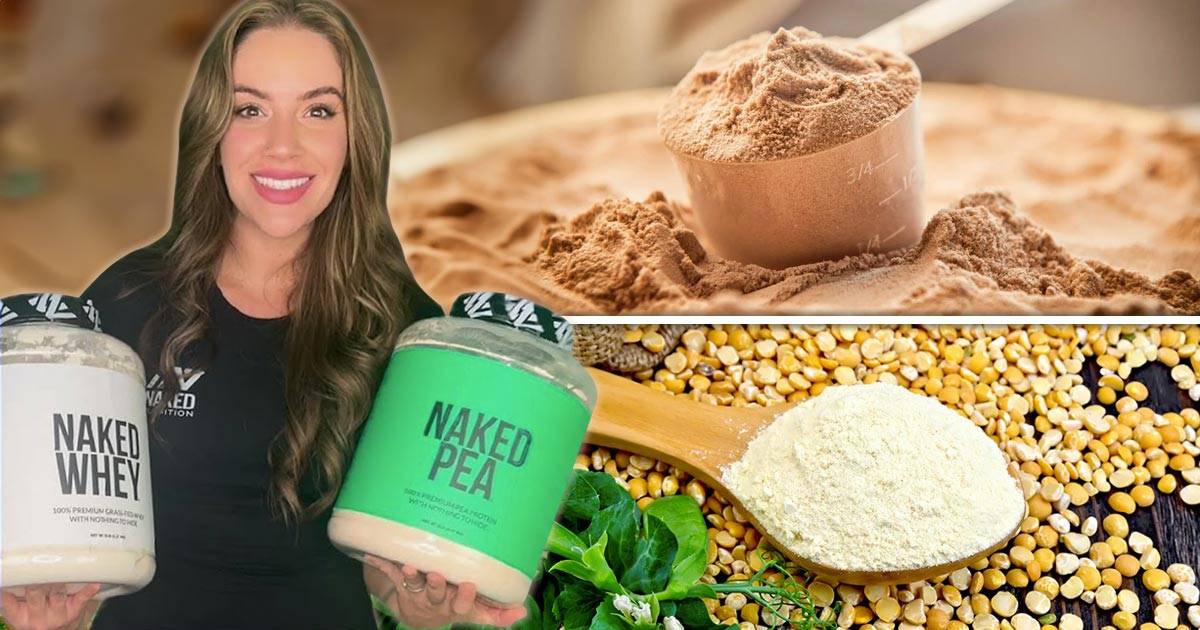Pea Protein or Whey Protein: Which is best for you?

Two options are becoming popular when it comes to protein supplements: pea protein and whey protein. Both have benefits and differences, which might make one better for you based on what you need in your diet and fitness routine.
What is pea protein?
Pea protein is a plant-based protein source derived from yellow split peas. It’s natural veganism and low allergy levels make it an excellent choice for people who follow a particular diet or have allergies.
Nutritional Profile of Pea Protein
Pea protein is a rich source of essential amino acids, including:
- Lysine: Crucial for muscle growth and repair
- Arginine: Supports cardiovascular health and immune function
- Glutamine: Aids in muscle recovery and gut health
However, pea protein is relatively low in certain amino acids, such as methionine and cysteine, which are essential for optimal muscle growth and recovery.
What is whey protein?
Whey protein, on the other hand, is derived from milk during the cheesemaking process. It is a complete protein, meaning it contains all nine essential amino acids that the body cannot produce on its own.
Nutritional Profile of Whey Protein
Whey protein is an excellent source of:
- Branched-chain amino acids (BCAAs): Leucine, isoleucine, and valine
- Essential amino acids: Lysine, threonine, and tryptophan
- Bioactive compounds: Lactoferrin, immunoglobulins, and lactoperoxidase
Whey protein, which is sourced from dairy products, may not be acceptable for people who are lactose intolerant or allergic to milk.
Differences Between Whey and Pea Protein
While both pea protein and whey protein offer several benefits, there are some key differences to consider when choosing between the two.
- Protein Content: Whey protein is generally higher in protein per serving than pea protein. A standard serving of whey protein provides around 20-25 grams of protein, while pea protein offers approximately 15-20 grams.
- Amino Acid Profile: Whey protein is regarded as a complete protein because of its high amino acid profile. Although pea protein is high in amino acids, it has fewer critical amino acids like leucine than whey.
- Digestibility: Pea protein is well-known for being easy to digest, which makes it an excellent option for people who have sensitive stomachs. Whey protein is similarly easily digestible for most people, although it can create digestive problems for some, particularly those who are lactose intolerant.
- Allergen Potential: Individuals with lactose intolerance or dairy allergies should avoid whey protein because it contains lactose and milk proteins. Pea protein, as a plant-based protein, is dairy-free and, hence, an acceptable alternative for individuals allergic to dairy.
- Environmental Impact: Pea protein has a lower environmental impact compared to whey protein, as it’s derived from a plant source and requires fewer resources to produce.
Which one should you choose?
Your dietary preferences, sensitivities, and fitness goals will ultimately determine whether you should use pea protein or whey protein. Here are some scenarios where one might be more suitable than the other:
- Vegan or Dairy-Free Diet: If you follow a vegan or dairy-free diet, pea protein is the clear choice due to its plant-based nature.
- Digestive Sensitivities: If you have digestive troubles or are sensitive to dairy, pea protein may be a better alternative for you.
- Muscle Building: If you’re looking to gain muscle mass, whey protein’s higher leucine concentration and complete amino acid profile may be more advantageous.
- Weight Loss: Pea protein is generally favored for weight loss because it has fewer calories and carbs than whey protein.
Is pea protein better than whey?
Both pea protein and whey protein have distinct benefits. Pea protein is a great plant-based choice that is easily digestible, but whey protein provides a complete protein with a diverse amino acid profile. Consider your dietary needs and fitness goals when choosing between the two to find the best protein supplement for you.
